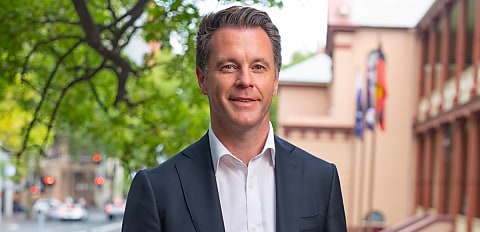The NSW state government announced today (29 May) that it has updated its housing target, aiming to build 377,000 new homes over the next five years.
This is an increase from the 375,000 homes that the Housing Australia Future Fund (HAFF) and the National Housing Accord allotted NSW as a part of the federal government’s target of 1.2 million homes by 2029.
The Minns Labor government announced updated housing targets for each local government area, ranging from 500 to 23,300 new homes depending on the local government area. For LGAs that meet or exceed the government housing targets, the government will be offering local government areas access to a $200 million pool of funding that can be spent on local infrastructure including hospitals, sporting facilities, and road maintenance.
The NSW government revealed that 82 per cent of the housing targets would come from infill areas, with only 18 per cent coming from greenfield locations. While the government acknowledged that the targets are “ambitious” (seeing as NSW only delivered 48,393 homes last year), it also said that it would not “sit back and do nothing”.
The targets focus on building new houses in Sydney’s eastern and northern suburbs and moving away from the western suburbs.
The new targets will, according to the NSW government, ensure that new homes being built are “more fairly rebalanced from the west of Sydney towards the east and north of Sydney”.
Western Sydney has taken the brunt of new housing developments but “without proper infrastructure to cope with the increase in population”, the Minns government has said.
According to Premier Chris Minns and Minister for Planning and Public Spaces Paul Scully, the new plan for increased housing will ensure that more houses are built closer to transport and work and in communities that already have access to hospitals and schools.
NSW has also noted that the state lost twice as many young people aged 30 and 40 between 2016 and 2021 than it gained. The government said that without action to support housing affordability, NSW was “at risk of being a city with no young people”.
Minns said: “We’re losing too many young people, people who make the city vibrant, essential workers and young families because they can’t afford a place to live in NSW. This has to change.”
Speaking on the increased targets for housing in east and north Sydney, Minns said: “I’ve talked a long time about the need to ensure we have a fairer balance of housing across the state – so housing is built close to already established transport links, schools and hospitals.
“While these targets are required to be released, the government has already acknowledged that they will be difficult to meet. That’s why this government is pulling all levers required to reforming planning and setting targets for housing growth, while providing the infrastructure needed to build better communities.”
Scully also commented on the revised targets, stating that they were “ambitious but realistic because they’re based on evidence”.
He said on the broader housing crisis: “We all need to be accountable. For too long, housing has been delivered without a plan. The new targets make for a fairer distribution across Sydney and NSW, with growth in areas where jobs and transport exist or are planned for.
“The good news is that nearly two-thirds of homes are either planned, under assessment or under construction.”
The Property Council of Australia's (PCA) NSW executive director Katie Stevenson welcomed the government's new targets.
She said: “We know that many local councils will work hard to meet their targets, but we need to make sure all councils are making significant effort to move at the pace of the best – we won’t close the housing gap without both carrot and stick."
Stevenson continued that the inclusion of rural LGAs was "very welcome". She said: “The housing crisis doesn’t stop at the boundaries of the Hawkesbury and Georges River. The inclusion of these additional LGAs would be very welcome and send a strong message that the Government has recognised the urgency of the situation."
[Related: Government releases details of Housing Australia financing]
